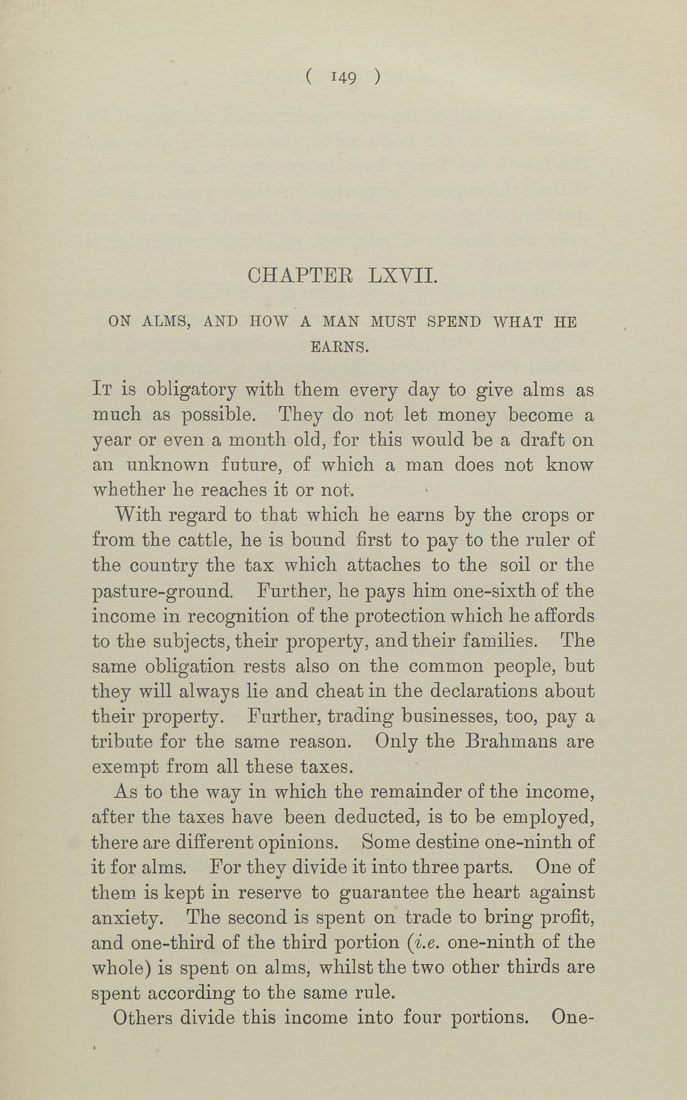Bīrūnī, Muḥammad ibn Aḥmad, Alberuni's India (v. 2)
(London : Kegan Paul, Trench, Trübner & Co., 1910.)
|
||
|
|
|
|
| Page 149 |

( 149 ) CHAPTER LXVII. ON ALMS, AND HOW A MAN MUST SPEND WHAT HE EARNS. It is obligatory with them every day to give alms as much as possible. They do not let money become a year or even a month old, for this would be a draft on an unknown future, of which a man does not know whether he reaches it or not. With regard to that which he earns by the crops or from the cattle, he is bound first to pay to the ruler of the country the tax which attaches to the soil or the pasture-ground. Further, he pays him one-sixth of the income in recognition of the protection which he affords to the subjects, their property, and their families. The same obligation rests also on the common people, but they will always lie and cheat in the declarations about their property. Further, trading businesses, too, pay a tribute for the same reason. Only the Brahmans are exempt from all these taxes. As to the way in which the remainder of the income, after the taxes have been deducted, is to be employed, there are different opinions. Some destine one-ninth of it for alms. For they divide it into three parts. One of them^ is kept in reserve to guarantee the heart against anxiety. The second is spent on trade to bring profit, and one-third of the third portion (i.e. one-ninth of the whole) is spent on alms, whilst the two other thirds are spent according to the same rule. Others divide this income into four portions. One- |
| Page 149 |







